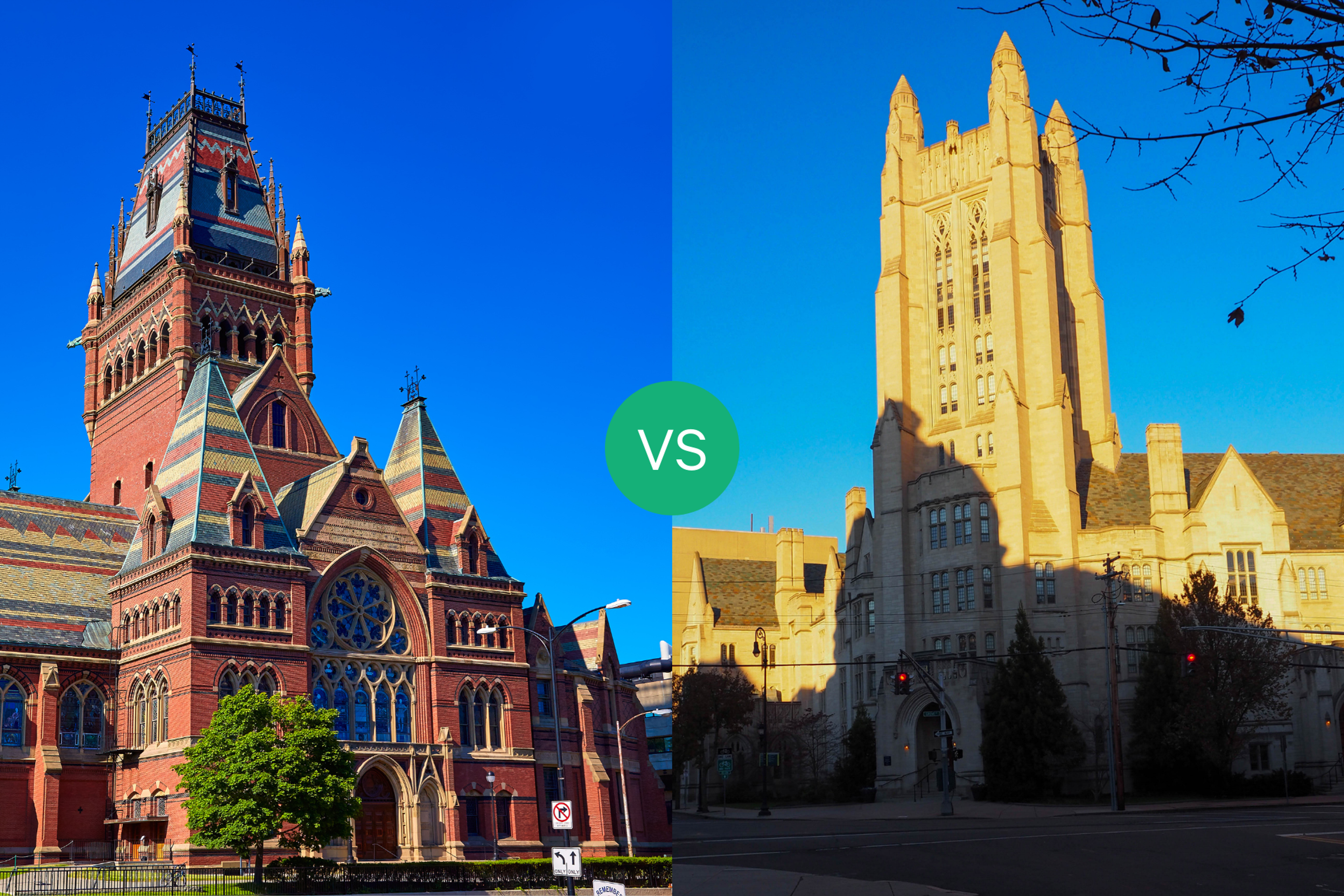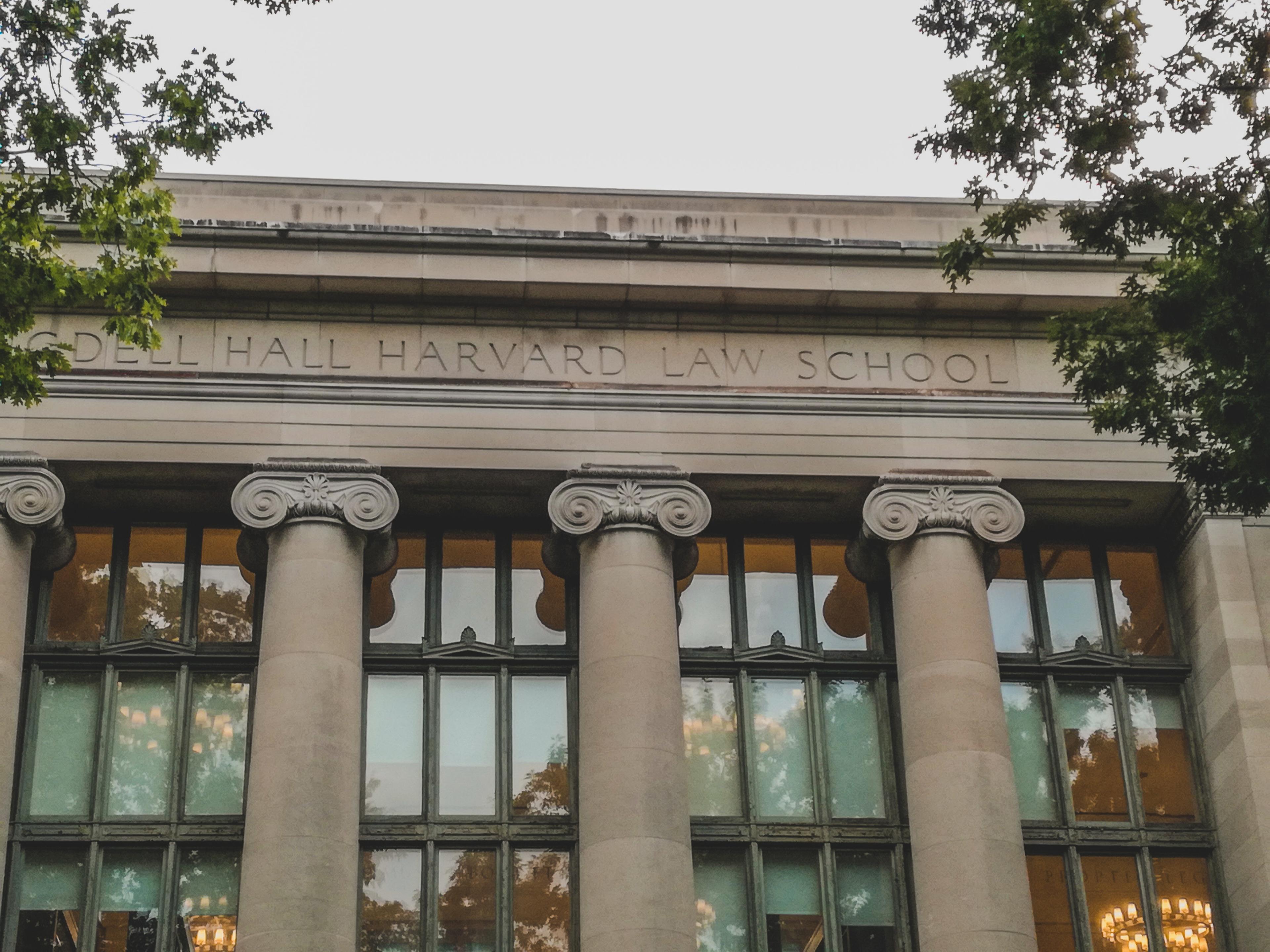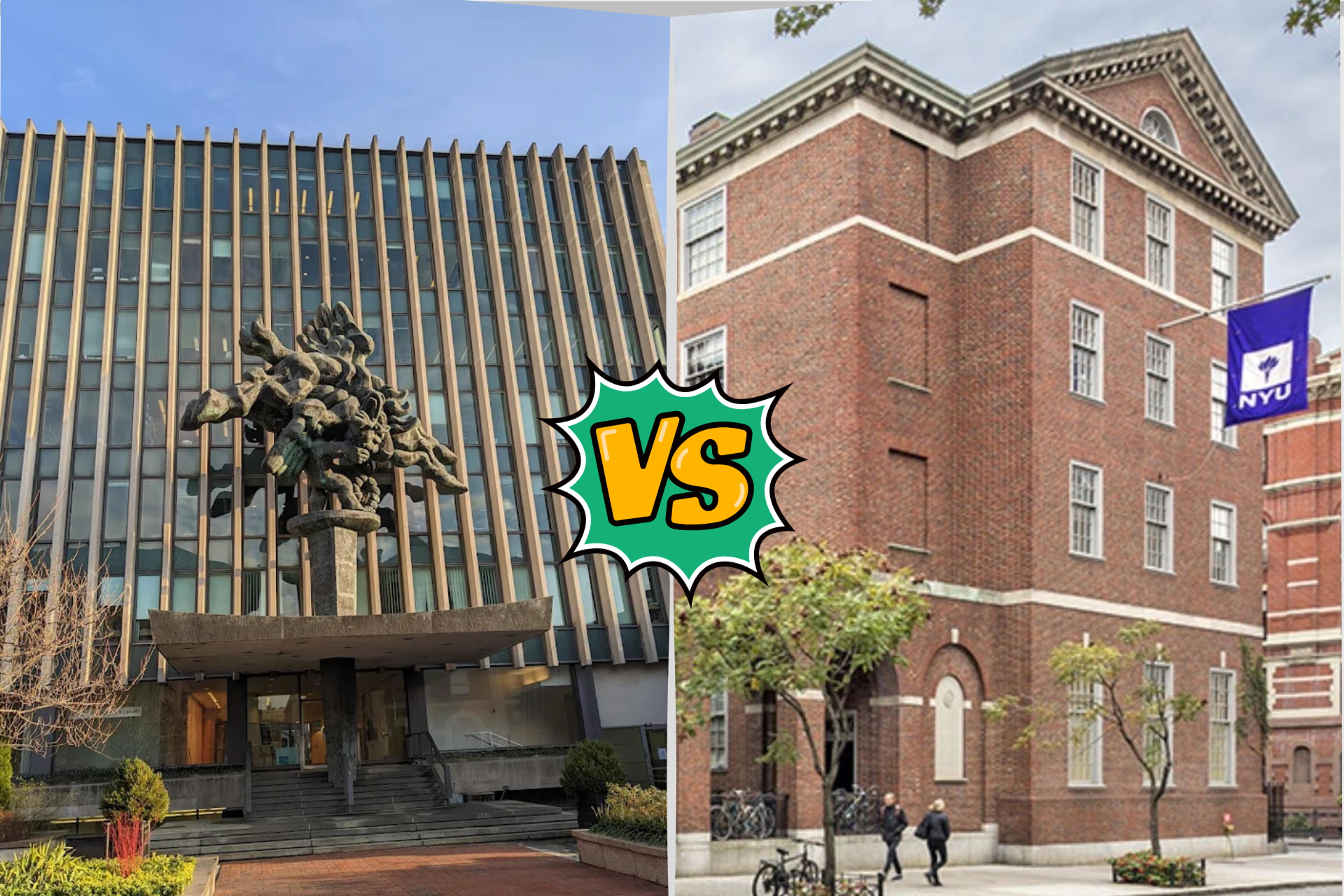Harvard Law School Vs. University of Texas--Austin School of Law: An In-Depth Comparison
Are you torn between attending Harvard Law School or the University of Texas--Austin School of Law? This in-depth comparison article provides a comprehensive analysis of both law schools, including their academic programs, faculty, campus culture, and career prospects.
Posted June 13, 2025

Join a free event
Learn from top coaches and industry experts in live, interactive sessions you can join for free.
Table of Contents
Welcome to our in-depth comparison of two of the most prestigious law schools in the United States: Harvard Law School and University of Texas--Austin School of Law. In this article, we will explore every aspect of these institutions, from their history and curriculum to their campus facilities and alumni success stories. By the end of this comprehensive guide, you will have a solid understanding of what each school has to offer, and which one might be the best fit for you.
Introduction: Understanding the Differences
Harvard Law School and University of Texas--Austin School of Law are both world-renowned institutions with high academic standards and a commitment to excellence. However, there are significant differences in terms of location, cultural climate, and academic focus. Harvard Law School is located in Cambridge, Massachusetts, and is part of the larger Harvard University system, while University of Texas--Austin School of Law is located in the heart of Austin, Texas, and is part of the University of Texas system.
Harvard Law School is known for its tradition of legal scholarship and its emphasis on theoretical and philosophical approaches to the law. It has a highly selective admissions process and a reputation for producing some of the most influential legal minds in history. In contrast, University of Texas--Austin School of Law places more emphasis on practical training and has a more diverse student body.
Another significant difference between the two law schools is their faculty. Harvard Law School has a faculty that is composed of some of the most respected legal scholars in the world. Many of them have written influential books and articles that have shaped the field of law. University of Texas--Austin School of Law, on the other hand, has a faculty that is more focused on practical experience. Many of the professors have worked as lawyers or judges and bring their real-world experience into the classroom.
History and Background of Harvard Law School and University of Texas--Austin School of Law
Harvard Law School was founded in 1817 and is the oldest continuously operating law school in the United States. It has a long and distinguished history, with alumni including former U.S. President Barack Obama, U.S. Supreme Court Justice Ruth Bader Ginsburg, and legal scholar Alan Dershowitz. The school has a strong tradition of legal scholarship and is known for its rigorous academic standards and high-profile faculty members.
University of Texas--Austin School of Law was established in 1883 and is one of the largest law schools in the country. It has a diverse student body and offers a wide range of programs and specializations. The school has a reputation for providing practical training and preparing students for successful careers in law.
Harvard Law School has a unique campus, located in Cambridge, Massachusetts, just across the Charles River from Boston. The campus includes several historic buildings, including Langdell Hall, which houses the law library and is named after Harvard Law School's first dean, Christopher Columbus Langdell. The school also has a strong commitment to public service, with many students and alumni working in government and non-profit organizations.
The University of Texas--Austin School of Law is located in the heart of Austin, Texas, a vibrant and growing city known for its music, food, and culture. The school has a strong connection to the local legal community, with many alumni practicing law in the city and surrounding areas. The school also has a number of clinics and programs focused on social justice issues, including the Immigration Clinic and the Domestic Violence Clinic.
Location and Campus Facilities: A Comparative Study
Harvard Law School is located in Cambridge, Massachusetts, just a few miles outside of Boston. The campus is nestled among historic buildings and offers stunning views of the Charles River. The law school shares a campus with other prestigious schools within Harvard University, including the Kennedy School of Government and the Business School.
University of Texas--Austin School of Law is located in the heart of Austin, Texas, and is surrounded by vibrant cultural attractions and a bustling downtown area. The law school has a modern campus with state-of-the-art facilities, including a law library with more than 1 million volumes.
In addition to its impressive facilities, the University of Texas--Austin School of Law also boasts a strong emphasis on practical experience. The school offers a variety of clinics and externships, allowing students to gain hands-on experience in areas such as criminal defense, immigration law, and intellectual property. The school also has a robust moot court program, where students can hone their advocacy skills by participating in simulated court proceedings.
Curriculum Comparison: Course Offerings, Specializations, and Faculty Expertise
Harvard Law School offers a wide range of courses across a variety of legal fields, including corporate law, constitutional law, human rights, and intellectual property. The school has a highly distinguished faculty, including legal scholars and practitioners who are experts in their respective fields. Harvard Law School also offers a range of joint degree programs, including a joint J.D./M.B.A. program with Harvard Business School.
University of Texas--Austin School of Law also offers a diverse curriculum with a range of courses and specializations to choose from, including environmental law, health law, and international law. The faculty includes esteemed scholars, active litigators, and judges who bring real-world experience to the classroom.
Admission Requirements: How to Get into Harvard Law School vs. University of Texas--Austin School of Law
Harvard Law School has a highly selective admissions process, with an acceptance rate of only 12%. Applicants must have an excellent academic record, strong test scores, and demonstrated leadership and community involvement. The school also looks for applicants who demonstrate intellectual curiosity and a passion for the law.
University of Texas--Austin School of Law is also highly competitive, with an acceptance rate of around 20%. Applicants are evaluated based on academic record, test scores, personal statement, and letters of recommendation. The school also takes into account factors such as work experience, community involvement, and diversity.
Student Life at Harvard Law School vs. University of Texas--Austin School of Law: Clubs, Activities, and Events
Harvard Law School offers a vibrant student community with a number of clubs and organizations to join. These include groups that focus on specific legal interests, as well as social and cultural clubs. The school also hosts a number of events and conferences throughout the year, including the Harvard Law International Women’s Day Conference and the Harvard Law and Policy Review Symposium.
University of Texas--Austin School of Law also offers a range of student organizations, including the Student Bar Association and specialty organizations such as the Women’s Law Caucus and the Intellectual Property Law Society. The school hosts a number of events throughout the year, including guest lectures and symposia on current legal topics.
Career Prospects for Graduates: Job Placement Statistics and Alumni Success Stories
Graduates of Harvard Law School have a strong track record of success, with alumni who have gone on to become prominent legal scholars, judges, and government leaders. According to the school’s official statistics, more than 90% of Harvard Law School graduates are employed within ten months of graduation, and the median starting salary for graduates is $190,000.
Graduates of University of Texas--Austin School of Law also have a strong record of success, with alumni who have gone on to work in a variety of legal fields, from private practice to public service. According to the school’s official statistics, around 88% of graduates are employed within ten months of graduation, and the median starting salary for graduates is $115,000.
Cost Comparison: Tuition Fees, Scholarships, and Financial Aid
Harvard Law School is one of the most expensive law schools in the country, with tuition and fees totaling around $70,000 per year. However, the school offers a range of scholarships and financial aid programs to help students cover the cost of attendance.
University of Texas--Austin School of Law is also expensive, with tuition and fees totaling around $40,000 per year for in-state students and $52,000 for out-of-state students. However, the school also offers a range of scholarships and financial aid options to make the cost of attendance more manageable.
Diversity and Inclusion: A Comparative Analysis
Harvard Law School is committed to promoting diversity and inclusion among its student body and faculty. The school has a number of initiatives aimed at increasing diversity, including outreach programs, scholarship opportunities, and affinity groups for students from underrepresented backgrounds.
University of Texas--Austin School of Law also places a strong emphasis on diversity and inclusion and has a number of programs and initiatives aimed at creating an inclusive and welcoming community. The school has a diversity and inclusion office that provides resources and support to students from underrepresented backgrounds.
Teaching Methodologies: Classroom Experience at Harvard Law School vs. University of Texas--Austin School of Law
Harvard Law School places a strong emphasis on teaching the theoretical and philosophical underpinnings of the law. The school uses the Socratic method to encourage students to think critically and engage in rigorous intellectual debate. The school also emphasizes legal writing and research skills to prepare students for legal practice.
University of Texas--Austin School of Law places a greater emphasis on practical training and hands-on experience. The school offers a number of clinical programs and externships that allow students to work on real legal cases and gain valuable experience in the field.
Research Opportunities for Students at Both Institutions
Both Harvard Law School and University of Texas--Austin School of Law offer a range of research opportunities for students, including access to extensive law libraries, research centers, and faculty-led research projects. Students at both schools can also participate in independent research projects and publish their work in academic journals.
Notable Faculty Members at Harvard Law School vs. University of Texas--Austin School of Law
Harvard Law School has a faculty of more than 100 legal scholars and practitioners, including some of the most prominent figures in the legal world. These include Alan Dershowitz, Laurence Tribe, and Harvard Law School Dean John F. Manning.
University of Texas--Austin School of Law also has a distinguished faculty, including many active practitioners and leading scholars in their fields. These include Sanford Levinson, Mechele Dickerson, and Richard Pildes.
Conclusion: Which Institution is Right for You?
Deciding between Harvard Law School and University of Texas--Austin School of Law can be a difficult choice. Ultimately, the decision will depend on your personal preferences and career goals. If you are interested in pursuing a career in academia or want the prestige of attending one of the oldest and most respected law schools in the world, Harvard Law School may be the right choice for you. However, if you prefer a more practical approach to legal education and want to gain hands-on experience in the field, University of Texas--Austin School of Law may be a better fit. Regardless of which school you choose, both institutions offer excellent legal education and a path toward a successful career in law.
Browse hundreds of expert coaches
Leland coaches have helped thousands of people achieve their goals. A dedicated mentor can make all the difference.



















